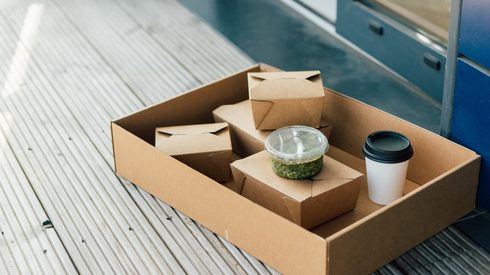As demand for sustainable feedstock from the biofuel industry surges, used cooking oil (UCO) offers unlimited potential for supply, particularly from cities with large populations. But how can the industry assess the credibility of supply volumes and prevent unwanted products from entering the UCO supply chain?
To instill confidence among regulators, procurers and other industry stakeholders, the market must align with a global sustainability and assessment program.
In our latest interview, Patrick Lynch of Bioledger reflects on the following key issues:
- The significance of traceability and transparency in the UCO and biofuel industry driven by sustainability goals and regulatory incentives
- The challenges faced by the industry in demonstrating product sustainability characteristics and securing investments
- How global regulations impact the market and the efforts to strike a balance between compliance and scalability
Why are traceability and transparency important in the UCO and biofuel market?
The primary intention of the policies driving the UCO and biofuel market is to deliver sustainability benefits and incentivize practices that align with regulatory goals. As an industry, it is crucial to demonstrate the sustainability characteristics of the products we supply into the market. Over the last decade, the traceability systems we have developed have been effective in enabling rapid scalability.
However, to secure necessary investments and reassure customers about the sustainability benefits, further improvements to traceability systems are required.
How does regulation impact the global market?
Regulators around the world play a significant role in shaping the market by defining specific risks and sustainability attributes they want to encourage.
These regulations influence the verification systems deployed throughout the supply chain. From major energy companies to individuals collecting food waste or used cooking oil, everyone must comply with these regulatory requirements and report sustainability characteristics.
While satisfying regulations is essential, it is equally important to implement them in a manner that fosters supply chain expansion and supports those involved in the process rather than creating bureaucratic barriers.
What are the key challenges in UCO traceability?
The UCO supply chain operates on a vast scale, with diverse day-to-day operations sourcing feedstock from cities worldwide. Various solutions, including paperwork, IT systems, and mobile apps, are used to record these collections. To establish confidence among regulators and market stakeholders, the industry needs to agree on a consensus regarding the minimum information required for demonstrating compliance.
What do the verification procedures look like in the US and in Europe? And how efficient are they in preventing fraud?
The US and European markets have distinct requirements for UCO traceability. Compliance regimes and IT solutions are well-established in Europe, while in the US, the requirements are more solidified in the RFS guidance, but implementation methods vary across the supply chain.
The efficiency of verification procedures in preventing fraud depends on the degree to which traceability efforts are deployed and the willingness of companies to set and meet high standards. Striking a balance between sufficient evidence for traceability and avoiding excessive bureaucracy is crucial for enabling market scalability.
Demand is growing. How is supply coping in terms of beginning stocks and imports?
The potential supply of UCO and food waste is significant in every city with a large population. As demand grows, there is no apparent cap on the physical supply potential. However, it is essential for regulators and industry experts to assess the credibility of this supply volume and ensure that compliance systems do not allow the inflation of volumes with unwanted products.
View our used cooking oil price data
Are there other streams of fats and oils that are being introduced into the UCO supply chain?
In Europe, there have been instances of introducing other fats and oils into the UCO supply chain, raising concerns about potential future occurrences. The industry must thoroughly examine the total physical potential and establish confidence in the accuracy of these numbers.
Patrick Lynch will be speaking at our next Fastmakets Biofuels and Feedstocks conference, to learn more about the UCO supply chain, other feedstock markets or biofuel industry news, join us in Rotterdam.







